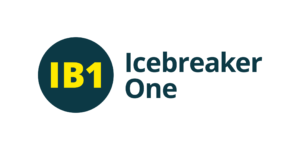Case study: Icebreaker One
State of Open: The UK in 2021
Phase Three: “The Value of Open”

 Gavin Starks, Founder and CEO
Gavin Starks, Founder and CEO
Synopsis
Icebreaker One brings together data sources and users to facilitate reaching net zero carbon emissions. Founder and CEO, Gavin Starks, explains that open source is central to everything Icebreaker One does. Open source can be used to achieve net zero through developing open standards – frameworks that allow for robust and secure data sharing that organisations can use to better understand how best to use data as a continuous flow of evidence that informs positive action. Gavin also stresses the importance of reciprocity, suggesting allowing time for your own team to support and give back to the open source community.
8.1 Icebreaker one
Prioritising open for positive change
In conversation with Gavin Starks, Founder and CEO
About Icebreaker One
Announced at Davos in 2020, Icebreaker One brings together data sources and users to facilitate reaching net zero carbon emissions. Open-source software and open data are critical to the solution. Gavin Starks, Founder and CEO, brings a unique perspective to Icebreaker One. His open-source roots go back to the origins of the World Wide Web itself, and he has decades of experience in the establishment of common data infrastructure standards, most notably in setting the foundations for Open Banking in the UK and as founding CEO of the Open Data Institute. We spoke to him to find out more about why Icebreaker One adopts an open source approach, and why others should do the same in energy.
Open source and sustainability
Open source is embedded in the very fabric of the organisation and its sustainability mission. Gavin stresses, “Everything we’re doing uses copious amounts of open source software.” Everything we produce is also published as open by default on their websites and services such as Github.
Imagine a decision-maker could mandate net-zero, continuously measure progress and act to adapt incentives in a timely, credible manner. The data required to give force to leadership mandates for climate-friendly policies and targets is likely to grow exponentially in the near future and open source can help. Icebreaker One’s own procurement processes include criteria devoted to commitments not only to net zero and to open licensing.
Part of how open is used to instrument net-zero is seen in the development of open standards – frameworks for robust and secure environmental and financial data sharing that can help organisations to understand how best to use data as a continuous flow of evidence that informs positive action.
Open source: Hardwired into Icebreaker One
Whenever possible, open source software is used at Icebreaker One. There’s no need for a transition from a closed to an open model for Icebreaker, as open has been their aim from its inception. This is reflected in their employees; Gavin notes that “the people who are attracted to work with us are already using open source software…and if they’re not they get there pretty quickly.” They actively seek opportunities to promote its use, and believe that commercial pressure will help continue this trend more widely.
Developers in the team can use company time to devote to updating open source software projects used within the organ- isation. Gavin explains that, “We effectively help pay for our team to contribute back to open source projects”. It’s through this mentality that there can be financial incentive to work both with open source software and on open source projects which will help drive the entire open ecosystem.
Time for idealism to meet practicalities: there are clear incentives for open source
The solution? For open technology, open data and open source software to be able to provide adequate solutions for business, the compensation and value exchanges involved in open development need to be rewarded. To preserve transparency, enable people to build on each others’ work and develop solutions that work for everyone is in all our interests and, given the urgency of the climate issue, doubly so.
One risk in the development of open source solutions where there are no financial means of support creates a reliance on free contributions. While this has huge benefits in removing conflicts of interest, it’s not always realistic to expect individuals to continue. As others reap financial rewards from open projects there is a responsibility on them to play-it-forward and help employ or fund their ongoing development.
Value exchange needs to be reciprocal and developers have bills too. If your company is using open source software (and it is likely you are) why wouldn’t you unlock your team to devote time (even a day a month) to help support them — this benefits your own business.
